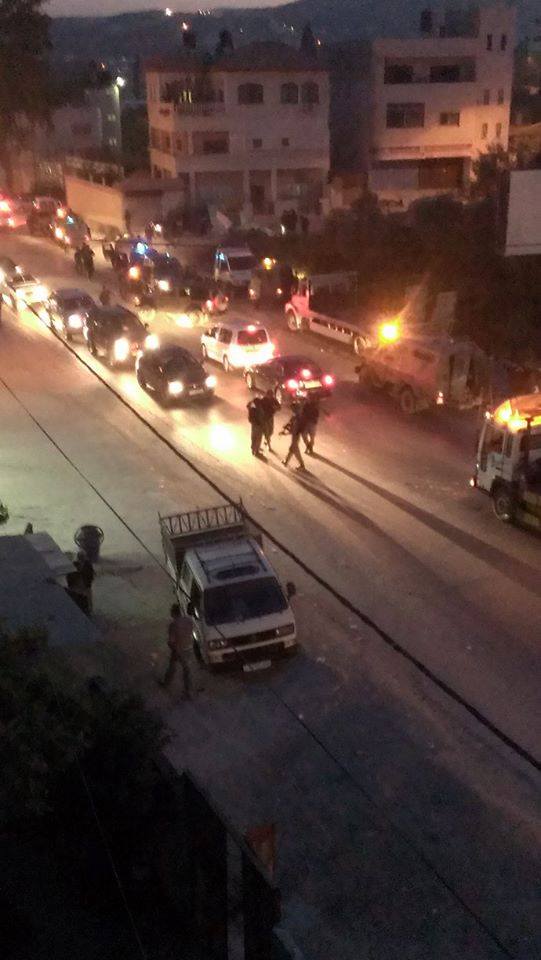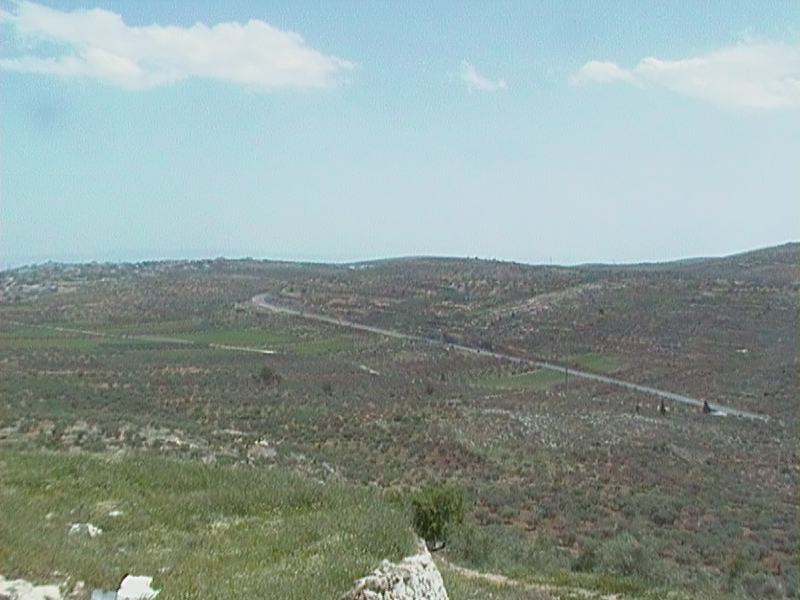-
Israeli forces destroy a camp where farmers live and work
11th April 2014 | International Solidarity Movement, Nablus Team | Jawana, Occupied Palestine Yesterday morning at approximately 7am, the Israeli army destroyed five tents donated by the Red Crescent to a group of farmers in the area of Jawana, between the village of Beit Furik and the ruins of Tana. Five military jeeps and two civil administration vehicles […]
-
One man shot and arrested by Israeli Border Police in Huwwara village
10th April 2014 | International Solidarity Movement, Nablus Team | Huwwara, Occupied Palestine On Sunday 6th of April, a 35-year-old Palestinian man was shot with live ammunition and then arrested by an Israeli Border Police Officer. This was after the man had thrown a Molotov cocktail against a passing military jeep on the main street of Huwwara, […]
-
Arrests and stolen land in Osarin village
10th April 2014 | International Solidarity Movement, Nablus Team | Osarin, Occupied Palestine In the last month, the Israeli army has arrested 10 boys under the age of 16 from Osarin village. As of today, they all remain in the prison. This is the latest in a long line of tactics employed by the Israeli military […]
Action Alert An Nabi Saleh Apartheid Wall Arrests BDS Bethlehem Bil'in Cast Lead Demonstration Denial of Entry Ethnic Cleansing Farmers Gaza Global Actions Hebron House Demolition International law Israeli Army Jerusalem Live Ammunition Nablus Ni'lin Prisoner Ramallah Rubber-coated steel bullets Settlement Settlers Settler violence Tear-Gas Canister Video



